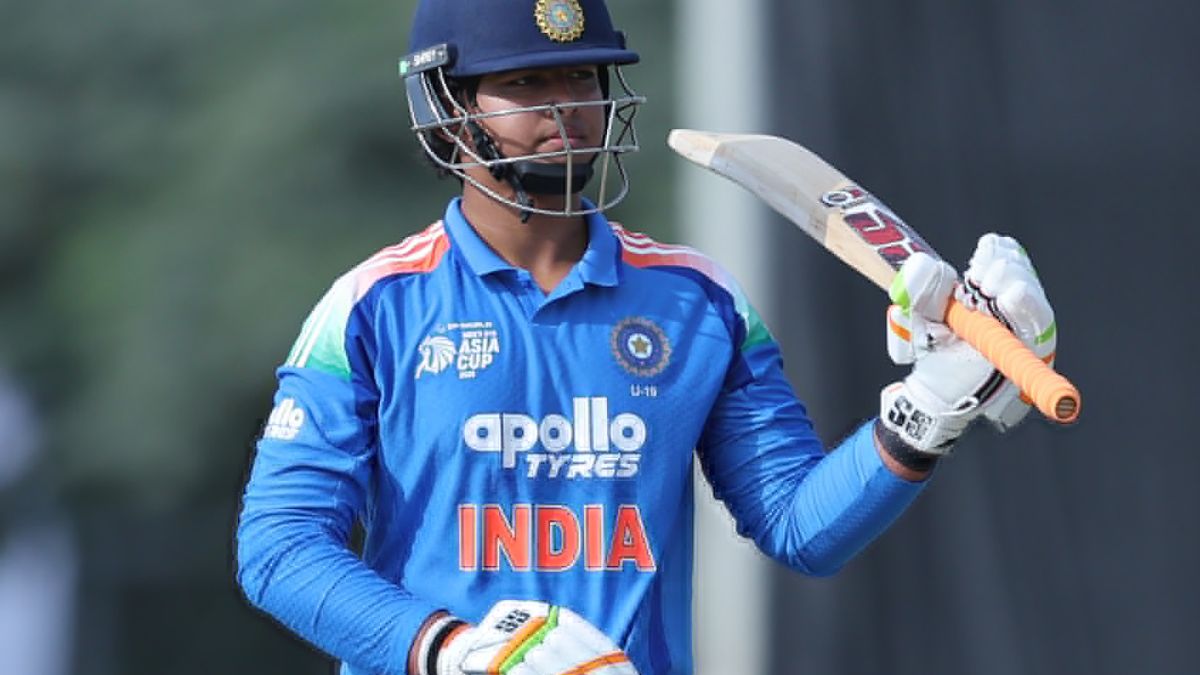
दुबई में अंडर-19 एशिया कप 2025 (Under-19 Asia Cup 2025) खेला जा रहा है और इसके पहले ही मैच में 14 साल के वैभव सूर्यवंशी (Vaibhav Suryavanshi) ने ऐतिहासिक पारी खेल हर किसी के होश फाख्ता कर दिए हैं। वैभव सूर्यवंशी ने 100 से भी कम गेंदों में 171 रन बनाकर इतिहास रच डाला है और हर किसी को सोचने पर मजबूर कर दिया है। तो आइए सूर्यवंशी के इस दमदार ऐतिहासिक पारी के बारे में विस्तार से बात कर लेते हैं।
Vaibhav Suryavanshi ने खेली 171 रन की पारी

मालूम हो कि आज, 12 दिसंबर से अंडर-19 एशिया कप 2025 की शुरुआत हुई और इसमें टीम इंडिया अपना पहला मैच यूएई अंडर-19 टीम के साथ खेल रही है। यह मैच सुबह 9:00 से शुरू हुआ और इस मैच में पहले बैटिंग करते हुए इंडियन टीम की ओर से वैभव सूर्यवंशी (Vaibhav Suryavanshi) ने 95 गेंदों में 171 रन बना डाले। उनके बल्ले से 9 चौके और 11 छक्के आए। उनका स्ट्राइक रेट 180 का रहा। वैभव सूर्यवंशी ने मैदान के हर कोने में शॉट लगाए और उनकी बल्लेबाजी देख हर कोई हैरान परेशान रह गया।
56 BALL HUNDRED BY VAIBHAV SURYAVANSHI IN THE U19 ASIA CUP.
pic.twitter.com/0evBWfVdaD
— Mufaddal Vohra (@mufaddal_vohra) December 12, 2025
सिर्फ 56 बॉल में जड़ दिया शतक
वैभव सूर्यवंशी (Vaibhav Suryavanshi) ने इस दौरान अपना शतक महज 56 गेंदों में जड़ दिया, जो कि तीसरा सबसे तेज़ यूथ ODI शतक है। इस साल की शुरुआत में इंग्लैंड के खिलाफ उन्होंने 52 गेंदों में सबसे तेज़ शतक का रिकॉर्ड अपने नाम किया था। वैभव सूर्यवंशी ने इस साल आईपीएल से लेकर लगभग हर जगह शतक जड़ा।
लगभग हर जगह शतक जड़ते आ रहे हैं वैभव
मालूम हो कि वैभव सूर्यवंशी (Vaibhav Suryavanshi) ने साल 2025 में काफी कमाल का प्रदर्शन किया है। उन्होंने आईपीएल में शतक जड़ा। इसके अलावा उन्होंने यूथ वनडे मैच, यूथ टेस्ट मैच में भी शतक जड़ा। वह यही नहीं रुके उन्होंने इंडिया ए की ओर से खेलते हुए भी राइजिंग एशिया कप में शतक जड़ा और फिर बिहार के लिए सैयद मुश्ताक अली ट्रॉफी में भी उनके बल्ले से शतक आया। और अब उन्होंने नया शतक यूएई के खिलाफ अंडर-19 एशिया कप में जड़ दिया है।
– Hundred in IPL
– Hundred in Youth ODI
– Hundred in Youth Test
– Hundred for India A
– Hundred in SMAT
– Hundred in U-19 Asia CupVAIBHAV SURYAVANSHI IN 2025.
pic.twitter.com/l6zN4c2l81
— Johns. (@CricCrazyJohns) December 12, 2025
यह भी पढ़ें: 3 गुमनाम खिलाड़ी जिनका आपने नाम तक नहीं सुना होगा, लेकिन IPL ऑक्शन में पा जाएंगे 10 करोड़ से ज्यादा की रकम
सोनी लिव पर देखें मैच का लाइव प्रसारण
बताते चलें कि अंडर-19 एशिया कप 2025 (U19 Asia Cup 2025) का लाइव प्रसारण सोनी लिव ऐप पर हो रहा है। ऐसे में अगर आप लोग इंडियन क्रिकेट टीम और इंडियन क्रिकेट स्टार वैभव सूर्यवंशी (Vaibhav Suryavanshi) के बल्लेबाजी का मजा लेना चाहते हैं, तो वहां आसानी से ले सकते हैं।
FAQs
वैभव सूर्यवंशी ने अब तक कितने शतक जड़े हैं?
यह भी पढ़ें: दूसरे टी20 में हार के बाद उपकप्तान पर भड़ास निकालते दिखे सूर्यकुमार यादव, शुभमन गिल के फ्लॉप शो पर उठाए सवाल
The post 6,6,6,6,6,6,6…… अंडर-19 एशिया कप में वैभव सूर्यवंशी का कोहराम, 56 बॉल पर UAE के खिलाफ जड़ दिया शतक appeared first on khelja.



